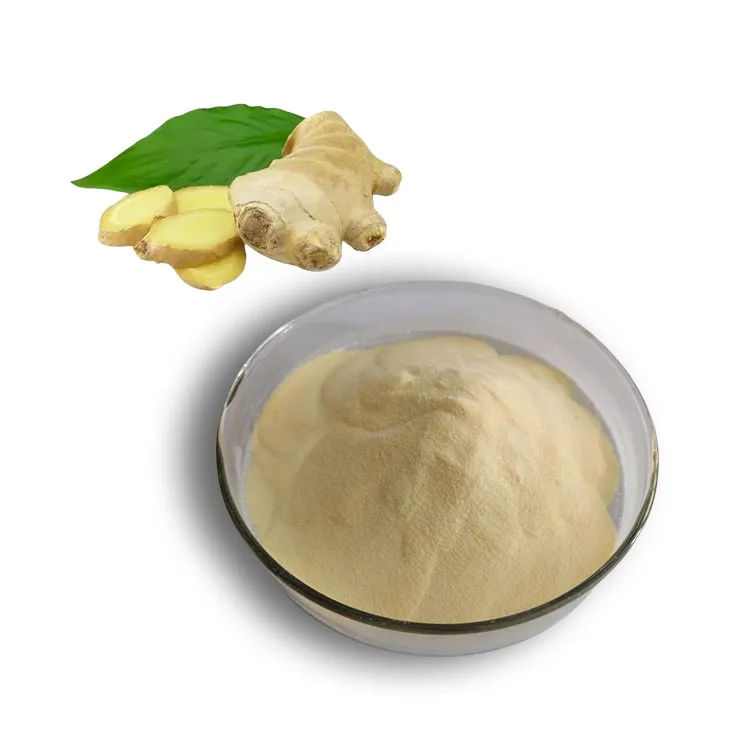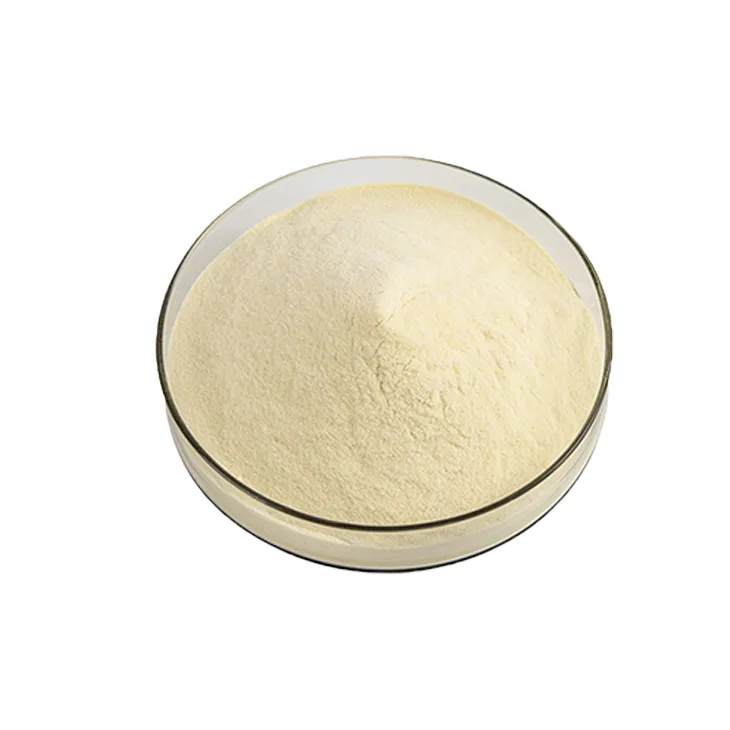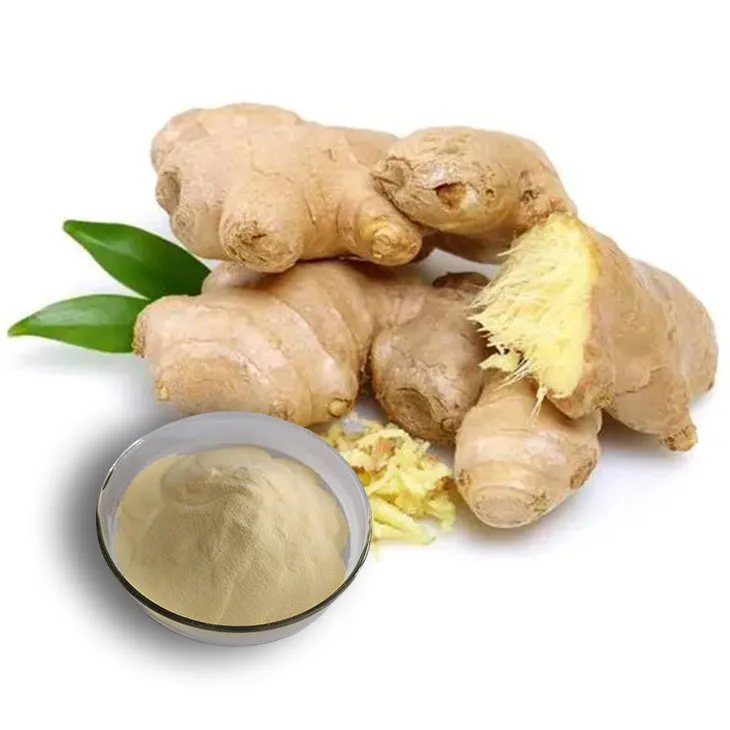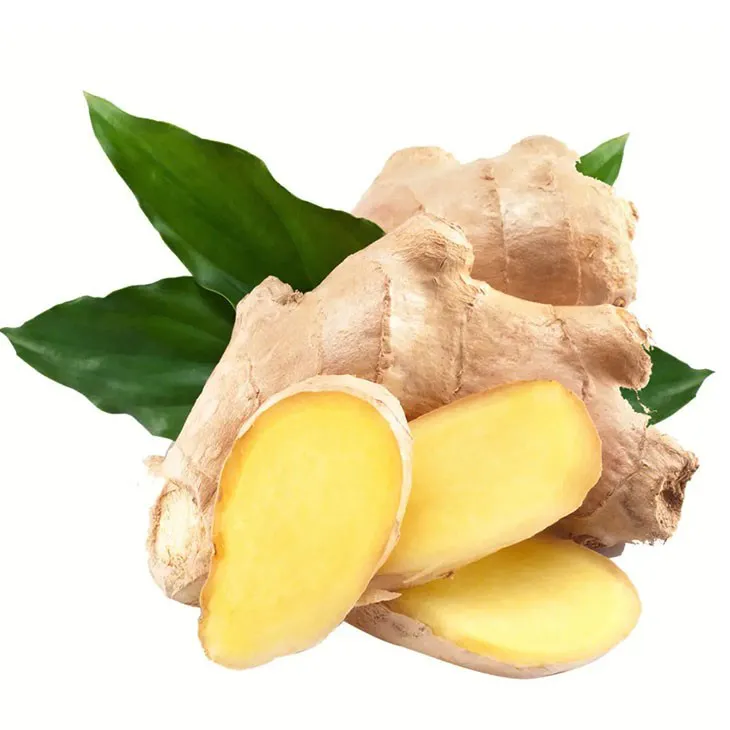- 0086-571-85302990
- sales@greenskybio.com
The Best Source of Natural Ginger Extract.
2024-11-26

Introduction
Ginger Extract has been gaining significant popularity in recent years, primarily due to its wide array of health - promoting properties. From its anti - inflammatory effects to its potential in aiding digestion, Ginger Extract has become a sought - after ingredient in various industries, including the food, beverage, and pharmaceutical sectors. However, the quality of Ginger Extract largely depends on its source. In this article, we will explore the best sources of natural ginger extract.

Freshly Harvested Ginger Rhizomes
1. Rich in Enzymes and Phytochemicals
Freshly harvested ginger rhizomes are the most fundamental and arguably the best source of natural ginger extract. These rhizomes are a powerhouse of enzymes and phytochemicals. Enzymes such as zingibain play important roles in various physiological processes. Phytochemicals like gingerols and shogaols are not only beneficial for health but also give ginger its characteristic flavor. Gingerols, for example, are known for their anti - inflammatory and antioxidant properties. They can help reduce oxidative stress in the body, which is associated with numerous chronic diseases.
2. Maximum Nutritional Value
When ginger is freshly harvested, it retains the maximum amount of its nutritional components. Compared to processed forms of ginger, freshly harvested rhizomes have not been subjected to heat, drying, or other forms of processing that may potentially degrade some of the beneficial compounds. This means that the ginger extract obtained from fresh rhizomes is likely to be more potent in terms of its health - promoting effects.
3. Versatility in Extraction
There are several methods to extract ginger extract from freshly harvested rhizomes. One common method is cold - pressing, which helps to preserve the delicate enzymes and phytochemicals. Another method is solvent extraction, where a suitable solvent is used to draw out the active compounds. However, care must be taken to ensure that the solvent used is safe and does not leave any harmful residues. The extract obtained from fresh ginger rhizomes can be used in a variety of products, from dietary supplements to natural cosmetics.

Ginger - based Herbal Teas
1. A Convenient Source
Ginger - based herbal teas are another excellent source of ginger extract. These teas are made from dried ginger pieces or a blend of ginger with other herbs. They offer a convenient way to consume ginger extract, especially for those who may not like the taste of raw ginger or find it difficult to incorporate fresh ginger into their diet. Ginger tea can be easily prepared by steeping dried ginger in hot water for a few minutes. Some commercial ginger teas also come in pre - packaged tea bags, making it even more convenient for consumers.
2. Blended with Other Herbs
Many ginger - based herbal teas are blended with other herbs such as lemongrass, peppermint, or chamomile. These blends not only enhance the flavor of the tea but also may provide additional health benefits. For example, a blend of ginger and lemongrass tea may have both anti - inflammatory and digestive - aid properties. The combination of different herbs can create a synergistic effect, where the overall health benefits are greater than the sum of the individual components.
3. Extraction during Brewing
When brewing ginger - based herbal teas, the hot water extracts the active compounds from the ginger and other herbs. The brewing process is a form of natural extraction. Although the concentration of ginger extract in tea may be lower compared to pure ginger extract obtained from rhizomes, it still provides a significant amount of the beneficial compounds. Moreover, the act of drinking tea is a pleasant and relaxing way to consume ginger extract, and it can be consumed several times a day.

Traditional Medicine Preparations
1. Time - tested Formulations
Some traditional medicine preparations that use ginger as a base ingredient can also be considered sources of ginger extract. These preparations often have unique extraction methods that have been passed down through generations. For example, in traditional Chinese medicine, ginger is often used in decoctions. A decoction is a method of extraction where the ginger (along with other herbs) is simmered in water for an extended period. This process helps to draw out the active compounds from the ginger, ensuring the integrity of the ginger extract. These time - tested formulations have been used for centuries to treat various ailments, indicating their potential efficacy.
2. Complex Formulations
Traditional medicine preparations using ginger are often complex formulations. They may contain other herbs, minerals, or animal products in addition to ginger. The combination of these ingredients is based on traditional knowledge and theories. For instance, in Ayurvedic medicine, ginger may be combined with turmeric, black pepper, and other herbs to create formulations for specific health conditions. The interactions between these ingredients can enhance the absorption and effectiveness of the ginger extract within the body.
3. Preservation of Traditional Knowledge
By considering traditional medicine preparations as sources of ginger extract, we also contribute to the preservation of traditional knowledge. These preparations represent the wisdom of our ancestors and their understanding of the healing properties of plants. However, it is important to note that when using traditional medicine preparations, proper scientific research and quality control are still necessary to ensure safety and effectiveness.

Conclusion
In conclusion, there are several excellent sources of natural ginger extract. Freshly harvested ginger rhizomes offer the purest and most potent form of ginger extract, rich in enzymes, phytochemicals, and other beneficial compounds. Ginger - based herbal teas provide a convenient and flavorful way to consume ginger extract, especially when blended with other herbs. Traditional medicine preparations, with their time - tested extraction methods and complex formulations, also offer a valuable source of ginger extract. Each source has its own unique characteristics and benefits, and depending on the intended use and personal preferences, one can choose the most suitable source of natural ginger extract.
FAQ:
What are the main health - promoting qualities of ginger extract?
Ginger extract is known for various health - promoting qualities. It may help with digestion, reducing nausea, having anti - inflammatory effects, and potentially aiding in improving circulation. However, more research is still being conducted in many of these areas.
Why are freshly harvested ginger rhizomes considered the best source?
Freshly harvested ginger rhizomes are considered the best source because they are rich in enzymes and phytochemicals. These components are not only good for health but also contribute to the unique flavor of ginger. They are in their most natural state when freshly harvested, containing all the elements that make ginger extract beneficial.
How are ginger - based herbal teas made?
Ginger - based herbal teas are made from dried ginger pieces or a blend of ginger with other herbs. The dried ginger or the blend is steeped in hot water for a certain period to extract the flavors and beneficial compounds, creating a tea that is a source of ginger extract.
Can traditional medicine preparations be as reliable as other sources?
Traditional medicine preparations that use ginger as a base ingredient can be reliable sources. These preparations often have unique extraction methods that have been passed down through generations. This long - standing tradition ensures that the integrity of the ginger extract is maintained, making them comparable to other sources in terms of reliability.
Are there any side effects of consuming ginger extract?
While ginger extract is generally safe for most people, some may experience side effects. These can include mild digestive issues such as heartburn, diarrhea, or mouth irritation in some cases. Also, those taking certain medications should consult a doctor before consuming ginger extract as it may interact with some drugs.
Related literature
- The Health Benefits of Ginger Extract: A Comprehensive Review"
- "Ginger Rhizomes: Optimal Sources and Extraction Methods for Bioactive Compounds"
- "Ginger - Based Herbal Teas: Composition and Health Implications"
- ▶ Hesperidin
- ▶ citrus bioflavonoids
- ▶ plant extract
- ▶ lycopene
- ▶ Diosmin
- ▶ Grape seed extract
- ▶ Sea buckthorn Juice Powder
- ▶ Beetroot powder
- ▶ Hops Extract
- ▶ Artichoke Extract
- ▶ Reishi mushroom extract
- ▶ Astaxanthin
- ▶ Green Tea Extract
- ▶ Curcumin Extract
- ▶ Horse Chestnut Extract
- ▶ Other Problems
- ▶ Boswellia Serrata Extract
- ▶ Resveratrol Extract
- ▶ Marigold Extract
- ▶ Grape Leaf Extract
- ▶ blog3
- ▶ blog4
-
Organic Tongkat Ali extract powder factory.
2024-11-26
-
How to make powder with ashwagandha extract.
2024-11-26
-
Rosehip extract manufacturers from China.
2024-11-26
-
The best cat's claw extract in nature.
2024-11-26
-
Chinese Dandelion Leaf Extract Suppliers.
2024-11-26
-
Chia Seed Powder
2024-11-26
-
Cassia Seed Extract
2024-11-26
-
Nettle Root Extract
2024-11-26
-
Polygonum Cuspidatum Extract
2024-11-26
-
Medicinal Marshmallow Extract
2024-11-26
-
melatonin extract
2024-11-26
-
Aminolevulinic acid
2024-11-26
-
Kupilu Extract
2024-11-26
-
Sophora Japonica Flower Extract
2024-11-26
-
Citrus Aurantium Extract
2024-11-26





















